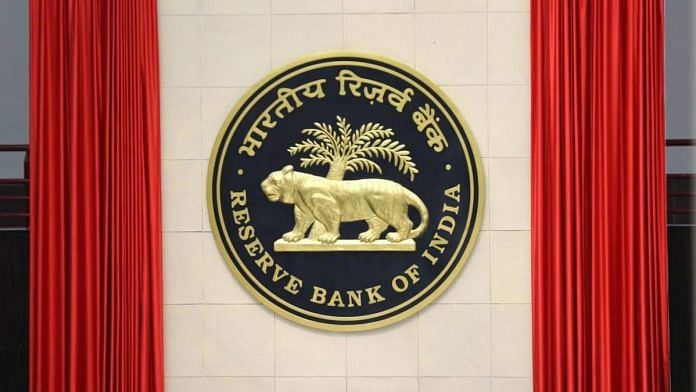New Delhi: The Reserve Bank of India (RBI) Friday allowed retail investors to directly buy and sell government bonds, a move the central bank’s governor, Shaktikanta Das, termed as structural reform.
ThePrint decodes what this means for a common retail investor.
What has the RBI permitted?
The RBI has permitted retail investors direct online access to the government securities market. The direct access to both the primary and secondary market, called ‘retail direct’, will be allowed directly through the RBI.
Why has RBI allowed ‘retail direct’?
The move is part of the RBI’s efforts to increase retail participation in government securities and to improve ease of access for these investors.
The central bank’s decision to allow direct investment will “broaden investor base and provide retail investors with enhanced access to participate in the government securities market,” said the RBI Friday. It will also partly help in smooth completion of the government borrowing programme for 2021-22, the central bank added.
With a sharp increase in fiscal deficit projections for the years 2020-21 and 2021-22, the government is budgeted to borrow Rs 12.8 lakh crore and Rs 12 lakh crore in these two years respectively.
Also read: RBI projects GDP growth of 10.5% for FY22, keeps interest rate unchanged at 4%
What difference does it make to retail investors?
So far, retail investors could not individually bid for government securities. However, the RBI had taken many steps to accommodate them, such as introduction of non-competitive bidding in primary auctions and permitting stock exchanges to aggregate primary purchases. This meant that the stock exchanges were allowed to aggregate the retail demand and place an order. But the central bank has now decided to move beyond this aggregator model.
How do retail investors directly invest now?
Individuals will be allowed to open a gilt account in the RBI’s electronic platform E-kuber. Then the retail investor can place a direct bid with the NDS-OM, an electronic anonymous order matching system for secondary market trading in government securities. The system is owned by the RBI. Currently, NDS-OM members include banks, primary dealers and insurance companies.
What does direct retail mean for bank deposits, fixed income mutual funds?
This new investment will provide more avenues for investments for retail investors beyond the current bank fixed deposits, fixed income mutual funds and government small saving schemes like the public provident fund.
In fact, the interest rates on government securities could be higher than bank fixed deposits across certain tenors. But the RBI is of the view that this additional option will not see a reduction in inflows into bank deposits.
RBI Governor Das said the total volume of savings will expand in the coming years and the size of the pie will be too large to worry about inflows reducing into bank deposits.
“It will not undermine the flow of deposits for banks and mutual funds. Even today, small savings rates offer higher rates than bank deposits, but still substantial money flows into bank deposits,” he said.
Do other countries permit such direct retail participation?
According to Das, very few countries in the world allow direct retail participation in the government securities market. These include the United States and Brazil. India is the first country in Asia to do so, he added.
Also read: Nirmala Sitharaman has done her job. Now, all eyes are on RBI Governor Shaktikanta Das




In the Ilanomics of this week, Prof.Ila Patnaik says that this buying and selling can take place only on the RBI website. So, it does not give wider options of buying and selling. Instead, she has suggested that this platform should have been merged with stock exchanges and depositories like NSDL. Thus, these g.secs bought in retail could have been traded more readily. This seems to make better sense. What could be the reason for RBI not choosing this option?
Anything which gives households a better real rate of return is welcome. One way or another, most national savings are in any case flowing to satiate the sovereign’s gargantuan appetite. We talk so much of more private investment being needed. Something should be left on the table for them as well.